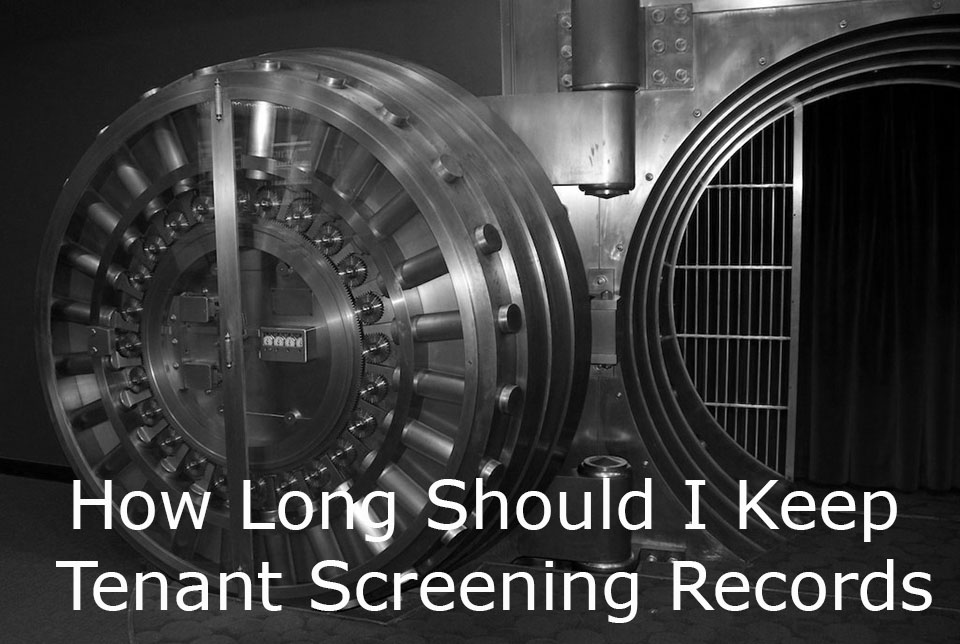
Tenant Screening Record Requirements
Getting a tenant background screening report to complete a transaction is important. Equally important, you need to be aware of tenant screening record requirements, especially if you have denied an applicant.
Fair Credit Report Act
The Fair Credit Reporting Act (FCRA) is a federal law that promotes accuracy, fairness and privacy for data used by consumer reporting agencies (CRAs). The FCRA is designed to protect the privacy of consumer report information and to guarantee that the information supplied by CRAs is as accurate as possible. A tenant screening report is a consumer report and subject to the FCRA.
FCRA and Record Requirements
The FCRA does not impose a specific record retention period relating to adverse actions. Therefore, if an applicant brings forth a claim relating to an adverse action, your records can help defend your position. Under the FCRA, an applicant can bring a claim within 5 years of the alleged violation. The Federal Trade Commission recommends keeping records for at least the statute of limitations period. Give yourself a margin and keep them for 6 years.
Which Records?
Any document related to the background check should be included. This list would include:
- Tenant Screening Application
- Disclosure and Authorization Form
- Completed Background Screening Report
- Adverse Action Notices
- Communications related to the background screening and dispute
FCRA Code
Below is an excerpt for the relevant section of the FCRA:
Federal Fair Credit Reporting Act (FCRA), 15 U.S.C. § 1681p § 618. Jurisdiction of courts; limitation of actions. An action to enforce any liability created under this title may be brought in any appropriate United States district court, without regard to the amount in controversy, or in any other court of competent jurisdiction, not later than the earlier of (1) 2 years after the date of discovery by the plaintiff of the violation that is the basis for such liability; or (2) 5 years after the date on which the violation that is the basis for such liability occurs.
Conclusion
You don’t need a vault. Of course, it is important to safely store tenant screening records. You can retain tenant screening documentation as paper or digital records. Similarly, many CRA’s will store documentation as part of their service. Be prepared and keep your tenant screening records. Whichever method you choose, be aware of tenant screening record requirements and safely store your tenant screening records.
>